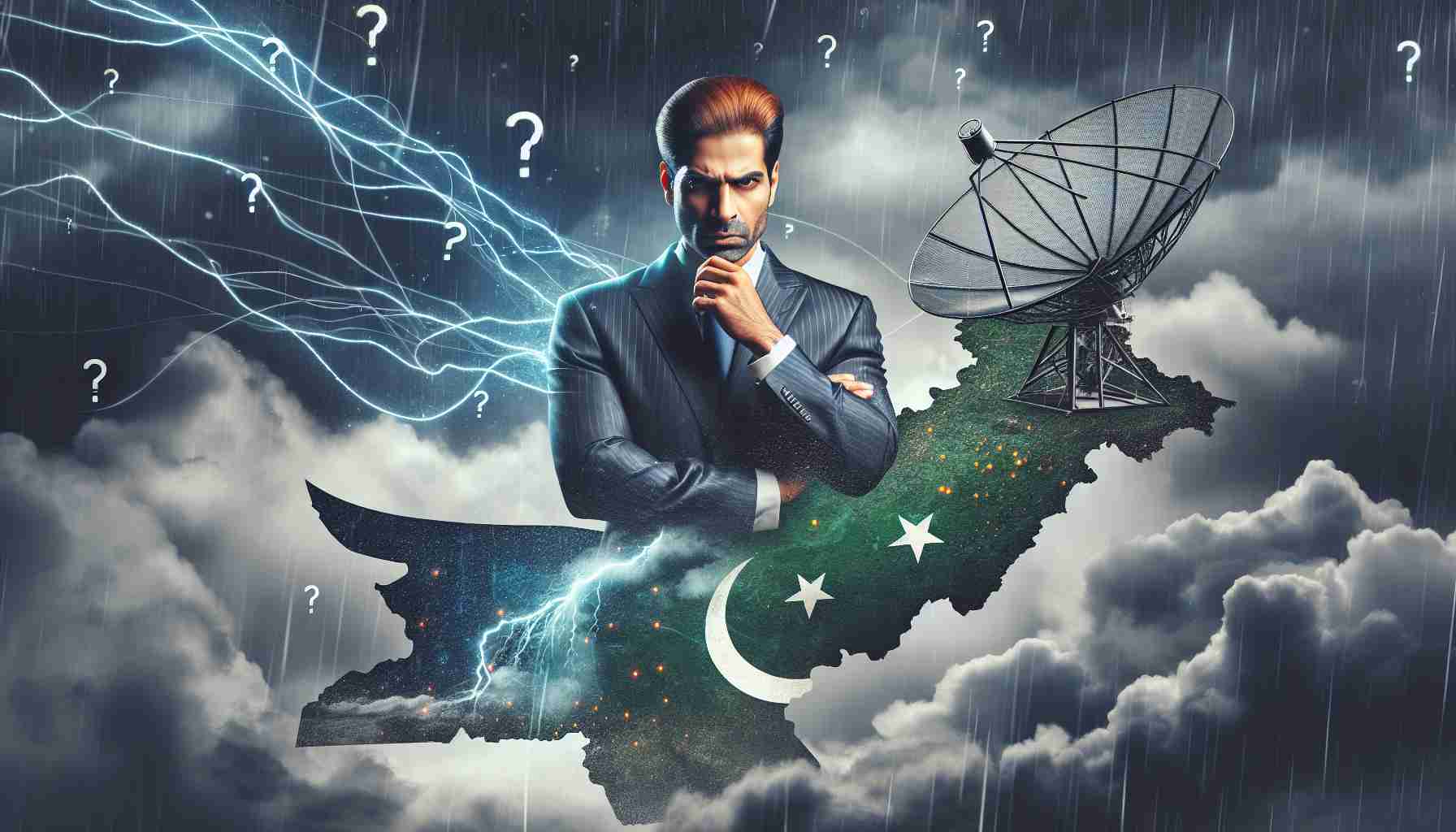Islamabad: Controversy surrounds billionaire Elon Musk as he seeks permission for his Starlink satellite internet service to operate in Pakistan. Lawmakers are calling for a public apology from Musk, claiming he has propagated negative sentiment towards Pakistan through recent remarks on social media.
The Pakistan Senate’s committee on information technology met to review Musk’s application, but the atmosphere was charged with criticism. The committee chair, Palwasha Mohammad Zai Khan, indicated that several senators expressed their concerns over Musk’s past comments, which they believe undermine Pakistan’s reputation.
During discussions, it was suggested that any approval for Starlink should come with an apology from Musk concerning his statements, although it was clarified that this was not a strict requirement but rather a topic of consideration. The senators’ accusations stem from Musk’s comments regarding individuals of Pakistani descent linked to serious crimes in another country, which they feel are unjustifiably damaging.
As the regulatory process unfolds, the outcome remains uncertain. Musk’s NewSpace company is eager to establish a footprint in Pakistan, providing internet access to many. However, it seems that a reconciliation between Musk and the Pakistani Senate may be paramount for advancing this ambitious venture. The saga continues as the nation watches closely.
Geopolitical Ramifications of Starlink’s Expansion into Pakistan
Elon Musk’s bid to launch Starlink in Pakistan not only stirs a local tempest but also resonates on a global scale. The intersection of technology and geopolitics in this scenario underscores a shift in how nations view foreign investments, especially from figures like Musk, who carry significant media influence. The growing debate around Musk’s statements reveals a deeper concern regarding the narrative powers held by international moguls.
This incident forms part of a larger cultural dialogue about the responsibilities that come with substantial economic engagement. For Pakistan, the potential for expanded internet access via Starlink could foster new opportunities for education and commerce. However, the apprehension expressed by senators reflects a cultural sensitivity towards foreign perceptions that could impact social cohesion in a nation struggling with its global image. If harnessed properly, the internet could empower marginalized communities, bridging educational divides and fostering innovation.
Moreover, this controversy highlights pressing environmental considerations tied to expanding satellite networks. With Starlink’s ambitions, the rise of space debris and its potential impact on orbital paths raises questions about sustainable growth in the tech sector. As nations grapple with technological advancements, the dialogue around accountability will inevitably shape regulatory frameworks in years to come.
Ultimately, Musk’s reconciliation with Pakistani officials may pave the way for future trends in media relations and international partnerships, revealing the critical balance between economic ambition and social responsibility.
Elon Musk in Hot Water: The Starlink Saga in Pakistan
The Controversy Around Starlink’s Entry into Pakistan
Elon Musk’s pursuit of bringing Starlink satellite internet service to Pakistan has sparked significant controversy, leading to concerns from lawmakers regarding his previous remarks about the country. The situation has sent ripples through the Pakistan Senate, with discussions emphasizing the importance of reputation and public sentiment.
The Senators’ Concerns
During a recent meeting of the Senate’s committee on information technology, chair Palwasha Mohammad Zai Khan voiced the frustrations of multiple senators who criticized Musk’s past comments. These comments, which involved individuals of Pakistani descent associated with alleged criminal activities in a foreign nation, have been perceived as damaging to Pakistan’s image.
While some senators proposed that Musk should issue a public apology before his application for Starlink is granted, this suggestion has been met with mixed responses. It highlights the tension between foreign investments and the sensitivities of local sentiments.
Potential Benefits of Starlink in Pakistan
Should Starlink receive approval, the service could revolutionize internet access in Pakistan, particularly in remote and underserved areas where traditional broadband services are lacking. Some potential benefits include:
– Improved Connectivity: Starlink’s low Earth orbit (LEO) satellites promise faster internet speeds and lower latency compared to conventional satellite internet services.
– Economic Opportunities: Enhanced internet access could boost local businesses, education, and government services, ultimately contributing to economic growth.
– Global Competitiveness: With better internet infrastructure, Pakistan could attract more foreign investment and improve its global competitiveness.
Challenges and Limitations
Despite the potential benefits, there are substantial challenges that Musk’s venture may face:
– Regulatory Hurdles: Aside from the controversy, navigating Pakistan’s regulatory environment could be complex and time-consuming.
– Market Acceptance: Gaining trust among consumers who may be skeptical of foreign entities operating in the local market could pose an additional barrier.
– Cultural Sensitivity: Understanding and respecting local cultural norms and sentiments will be crucial for establishing a successful operation.
Future of Starlink in Pakistan
With the ongoing discussions in the Senate, the fate of Musk’s Starlink initiative in Pakistan hangs in the balance. It remains to be seen whether a resolution can be reached that satisfies both parties. This situation symbolizes a broader trend of how international businesses must navigate local sentiments and politics to succeed.
Conclusion
The ongoing saga of Elon Musk and Starlink’s potential entry into Pakistan is more than just a business venture; it serves as a reminder of the intersections between technology, reputation, and public sentiment in today’s globalised world. As the situation evolves, all eyes will be on how both Musk and the Pakistani government address these tensions moving forward.
For more information on telecommunications and internet accessibility in Pakistan, check out Pakistan Telecommunication Authority.
